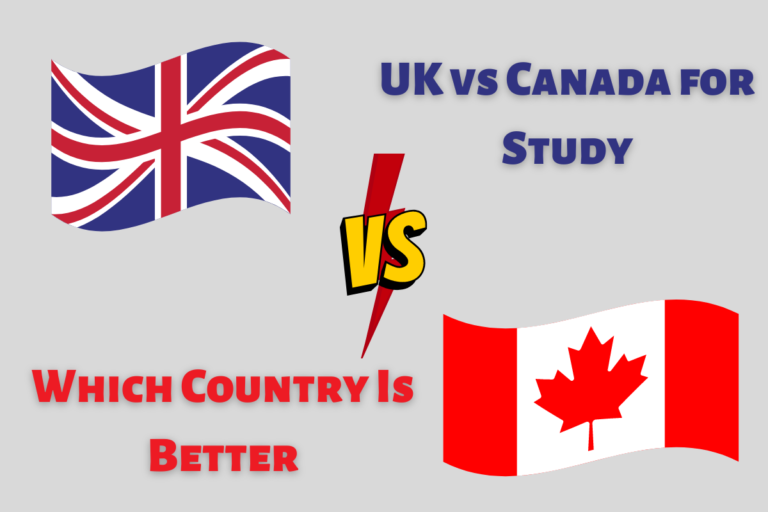What is The Cost of Studying in Canada for Pakistani Students in 2023?
The cost of studying in Canada for Pakistani students can vary depending on the program, institution, location, and personal expenses. Here is a breakdown of the costs involved:
- Tuition Fees: Tuition fees in Canada vary depending on the program and institution. On average, undergraduate programs can cost between CAD 10,000 to CAD 30,000 per year, while graduate programs can cost between CAD 15,000 to CAD 35,000 per year. However, some programs can cost significantly more.
- Living Expenses: Living expenses can vary depending on the location and personal lifestyle. On average, students can expect to spend between CAD 10,000 to CAD 15,000 per year on accommodation, food, transportation, and other personal expenses.
- Health Insurance: International students in Canada are required to have health insurance. The cost of health insurance can vary depending on the province and the insurance provider. On average, students can expect to pay between CAD 600 to CAD 800 per year.
- Application Fees: Students need to pay application fees when applying to Canadian universities. The cost of application fees can vary depending on the institution. On average, students can expect to pay between CAD 100 to CAD 200 per application.
- Student Visa Fees: Pakistani students are required to obtain a student visa to study in Canada. The cost of a student visa is CAD 150.
Overall, the cost of studying in Canada for Pakistani students can range from CAD 20,000 to CAD 50,000 per year, depending on the factors mentioned above. It is important to research and budget accordingly to ensure that you can afford the cost of studying in Canada. Additionally, there are scholarships and financial aid options available for international students, which can help offset the cost of studying in Canada.
What is the tuition fee in Canadian universities?
The tuition fee in Canadian universities can vary depending on the institution, program, and level of study. On average, undergraduate programs can cost between CAD 10,000 to CAD 30,000 per year, while graduate programs can cost between CAD 15,000 to CAD 35,000 per year. However, some programs, particularly those in professional fields such as medicine, law, and business, can cost significantly more.
The tuition fees for international students are generally higher than those for domestic students. This is because international students are not eligible for government subsidies that help to offset the cost of education for domestic students. Additionally, some universities may charge higher tuition fees for certain programs or for students from certain countries.
It is important to note that tuition fees can vary widely depending on the institution and program. Therefore, it is recommended to research the tuition fees for specific universities and programs that you are interested in. Many universities also provide information on their websites regarding tuition fees, scholarships, and financial aid options for international students.
What are the living expenses for studying abroad in Canada?
The living expenses for studying abroad in Canada can vary depending on the location, lifestyle, and personal preferences of the student. Here are some of the main living expenses to consider:
- Accommodation: The cost of accommodation can vary depending on the location and type of housing. On average, students can expect to pay between CAD 500 to CAD 1,500 per month for housing. This can include renting a room in a shared apartment, living in a student residence, or renting a studio or one-bedroom apartment.
- Food: The cost of food can vary depending on where and how often you eat out. On average, students can expect to spend between CAD 200 to CAD 400 per month on groceries and meals.
- Transportation: The cost of transportation can vary depending on the location and mode of transportation. On average, students can expect to spend between CAD 50 to CAD 150 per month on public transportation.
- Health Insurance: International students in Canada are required to have health insurance. The cost of health insurance can vary depending on the province and the insurance provider. On average, students can expect to pay between CAD 600 to CAD 800 per year.
- Personal expenses: This can include expenses such as clothing, entertainment, and other personal items. On average, students can expect to spend between CAD 200 to CAD 400 per month on personal expenses.
Overall, the cost of living in Canada can vary depending on the location and personal lifestyle. It is important to research the cost of living in specific cities and plan a budget accordingly to ensure that you can afford the cost of studying abroad in Canada. Additionally, many universities provide information on their websites regarding estimated living expenses for international students.
Are there scholarships available for studying abroad in Canada?
Yes, there are scholarships available for international students to study abroad in Canada. Here are some of the scholarship options:
- Government scholarships: The Canadian government offers a number of scholarships for international students, such as the Vanier Canada Graduate Scholarships, which provides CAD 50,000 per year for up to three years of doctoral studies in Canada.
- University scholarships: Many Canadian universities offer scholarships to international students based on academic merit, financial need, or other criteria. These scholarships can range from a few hundred dollars to full tuition coverage.
- Private scholarships: Private organizations and foundations also offer scholarships for international students to study in Canada. These scholarships can vary in amount and eligibility criteria.
- Country-specific scholarships: Some Canadian universities offer scholarships specifically for students from certain countries. These scholarships can provide financial assistance to cover tuition fees, living expenses, and other costs associated with studying in Canada.
It is important to research and apply for scholarships early, as many have early application deadlines. Additionally, some scholarships may require separate applications, essays, or letters of recommendation. It is also important to note that competition for scholarships can be high, so it is recommended to apply for multiple scholarships to increase your chances of receiving funding.
Can I get an education loan for Canada to study abroad?
Yes, international students can get an education loan to study in Canada, although the availability and terms of the loan may depend on the country of origin and the financial institution. Here are some of the loan options:
- Government loans: Some governments offer loans or financial aid for their citizens to study abroad. For example, the Canadian government offers loans and grants to eligible Canadian students studying abroad.
- Private loans: Private financial institutions, such as banks or credit unions, may offer loans for international students to study in Canada. These loans may require a co-signer, collateral, or credit history.
- University loans: Some universities may offer loans or financial assistance to international students. These loans may be offered based on academic merit, financial need, or other criteria.
It is important to research and compares loan options from different sources to find the one that best suits your needs. Before applying for a loan, it is recommended to have a clear understanding of the terms and conditions of the loan, including interest rates, repayment schedules, and any fees associated with the loan. Additionally, it is important to plan a budget to ensure that you can repay the loan after graduation.
What are the top universities in Canada?
Canada has many highly regarded universities, and the top universities in Canada are widely recognized for their academic excellence, research capabilities, and student experience. Here are some of the top universities in Canada, according to various international rankings:
- University of Toronto
- University of British Columbia
- McGill University
- University of Alberta
- University of Montreal
- McMaster University
- University of Waterloo
- Western University
- Queen’s University
- University of Calgary
It is important to note that the ranking of universities can vary depending on the criteria and methodology used in the ranking. It is recommended to research the specific programs, faculty, and student experience at each university to determine the best fit for your academic and personal goals. Additionally, other factors such as location, campus culture, and extracurricular opportunities may also play a role in your university decision.
How much bank balance for a Canada student visa?
To apply for a Canadian student visa, international students must provide proof of financial support. The amount of money required will depend on the program of study, the length of the program, and the location of the university.
As of February 2023, the Canadian government requires international students to have at least CAD 10,000 per year to cover living expenses, in addition to tuition fees. Therefore, for a standard two-year master’s program, international students would need to show at least CAD 20,000 in their bank account to cover living expenses, in addition to the tuition fees.
It is important to note that the actual amount of money required may vary depending on the university and the location. It is recommended to research the specific financial requirements for the chosen university and program of study, as well as any other expenses such as health insurance, transportation, and textbooks. Additionally, it is recommended to plan a budget to ensure that you have enough funds to cover all expenses during your studies in Canada.




